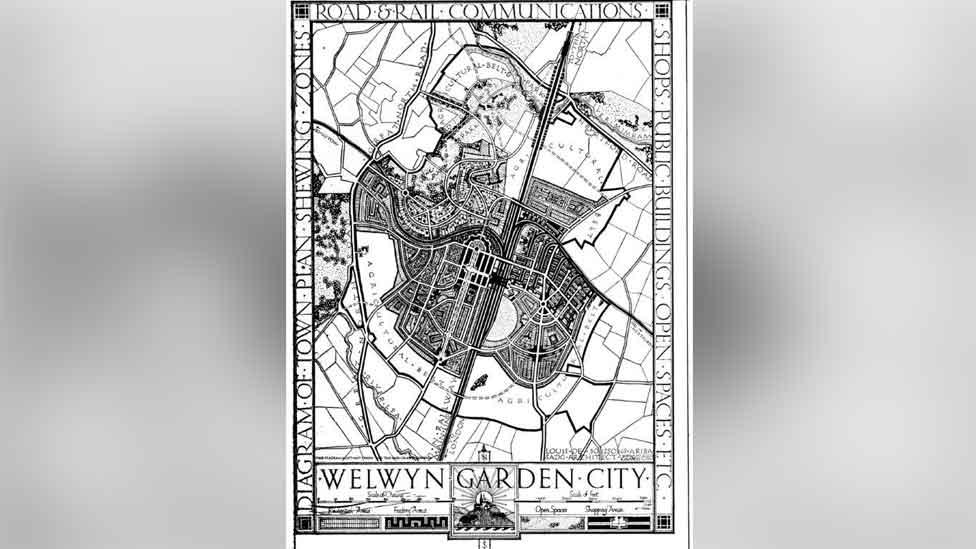Welwyn Garden city's planned high rises rejected
- Published
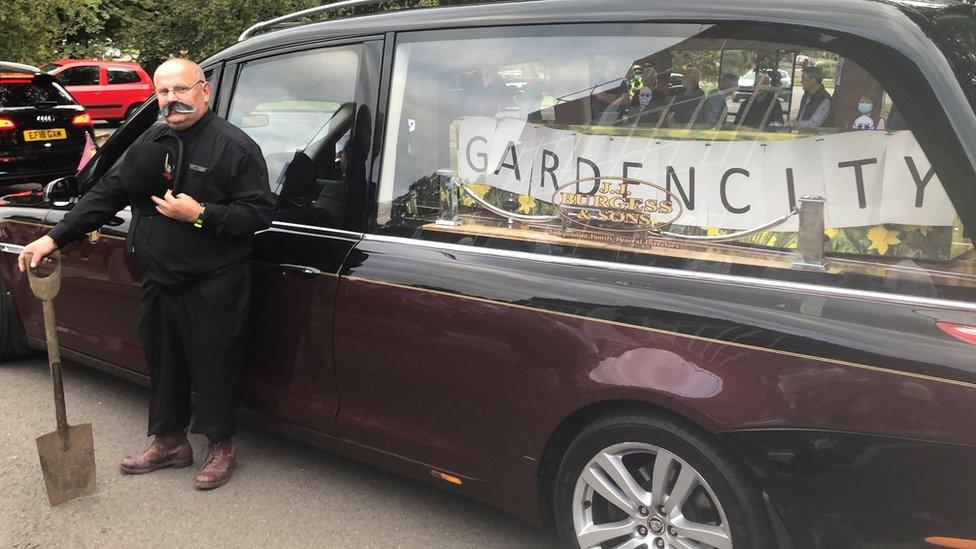
Campaigner Nigel Parker dressed as Sir Ebenezer Howard, while the hearse was meant to represent the "death" of the garden city concept
Plans to build high rises that opponents said would turn a 100-year-old garden city into a "concrete city" have been rejected by councillors.
The HR Group wanted to build 289 homes on the former BioPark site in Welwyn Garden City, Hertfordshire.
Campaigners dressed up as the town's founder Sir Ebeneezer Howard ahead of the council meeting, claiming the plans were against his "ethos".
The developer said it was "disappointed" and would appeal.
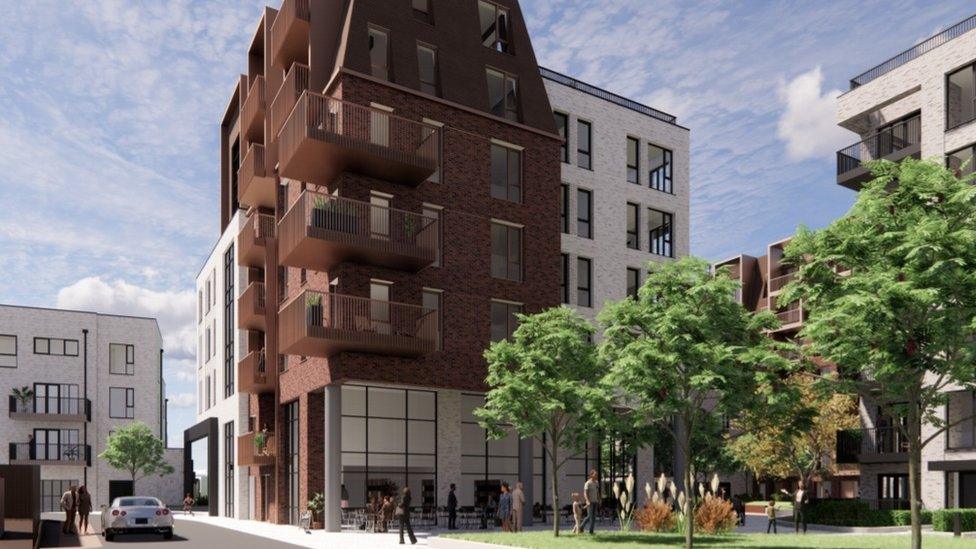
The plans were a "high quality development", the HG Group said
Welwyn Garden City was founded in 1920 based on designs by the urban planner Sir Ebenezer Howard, who wanted to build better-planned urban areas, with plenty of green space.
The decision taken by Welwyn Hatfield Borough Council was met with cheers from about 200 residents at the committee meeting.
The Broadwater Gardens, external plan included a number of apartment blocks, between four and nine storeys high, and townhouses.
"The landscaping will create a series of communal gardens and interconnected landscaped courtyards, shielded from railway noise," the HG Group proposal said.
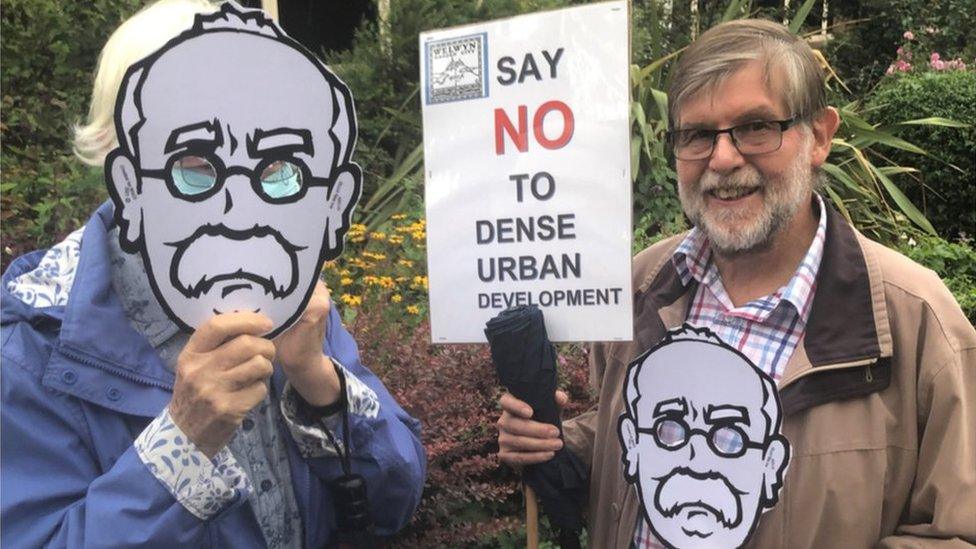
Protestors also had masks of the founder of Welwyn Garden City, Sir Ebenezer Howard
Martin Norman, founder of the Keep the G in Welwyn Garden City campaign, said it was a "fantastic victory where councillors listened to the people and we proved we are a living, breathing town".
Conservative Jonathan Boulton, chairman of the development management committee, voted in favour of the scheme and said it was "a difficult application".
"That proposal, whatever your personal view, was acceptable and that was based on the advice given to me by the officers and that's what I conveyed to the members," he said.
Russ Platt, Liberal Democrat councillor for the Pear Tree Ward where the site is located, said: "We were against the scale of it.
"Nine-storey buildings set a precedent and people said it would then become a 'concrete city'.
"The whole ethos of the city was to create green spaces to play and live in, and this goes against that and what it stands for."
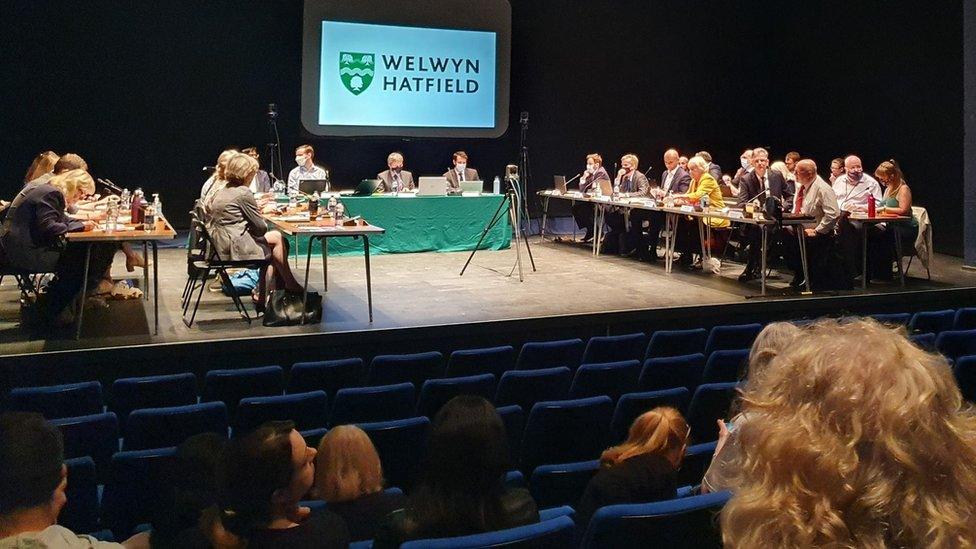
The Thursday night meeting was held at Campus West theatre in Welwyn Garden City
A spokesman for the HR Group said: "We're disappointed with the decision, especially in light of the support of council officers.
"While we appreciate there has been a huge campaign against town centre development, the reality is that not developing on this sustainable brownfield site will lead to more greenbelt development.
"We will be appealing this decision with the Planning Inspector."

Find BBC News: East of England on Facebook, external, Instagram, external and Twitter, external. If you have a story suggestion email eastofenglandnews@bbc.co.uk, external
Related topics
- Published29 April 2021
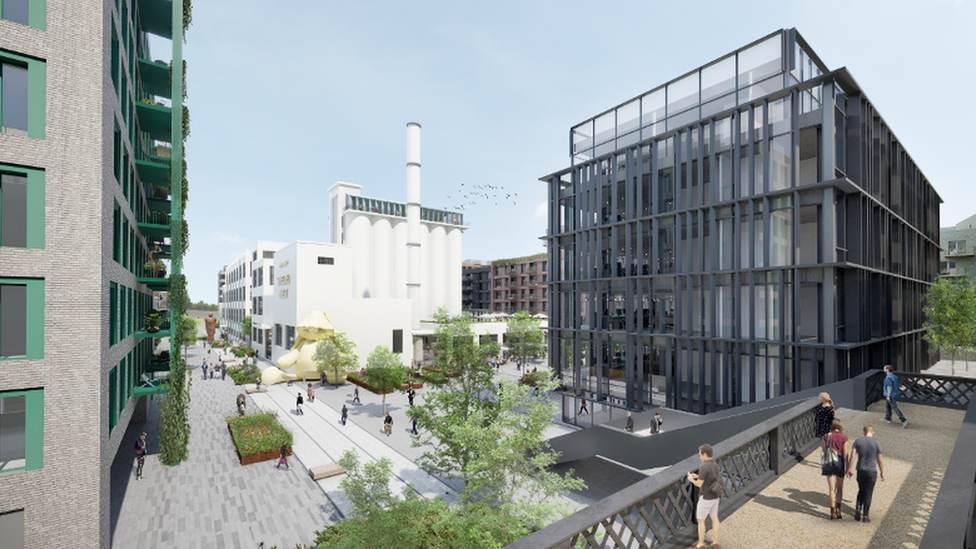
- Published14 April 2021
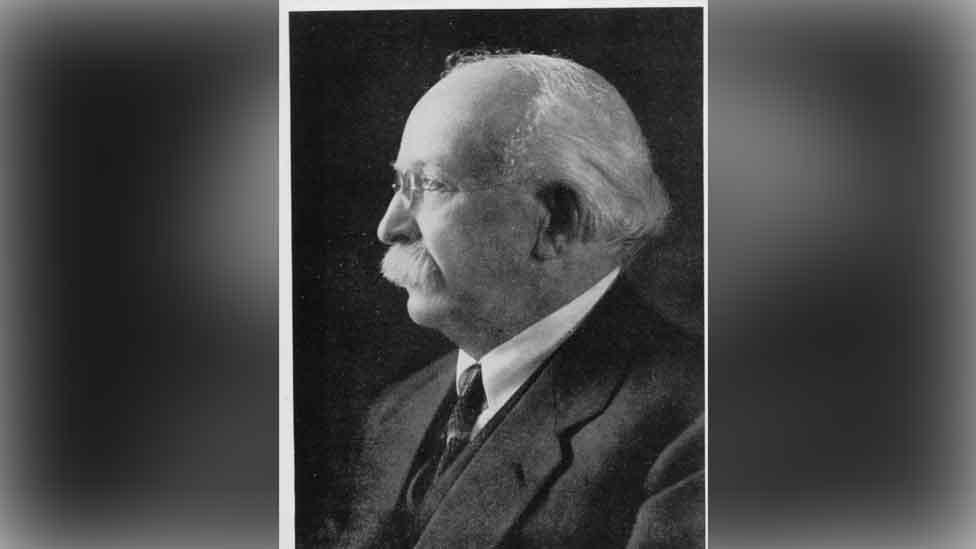
- Published1 January 2020
